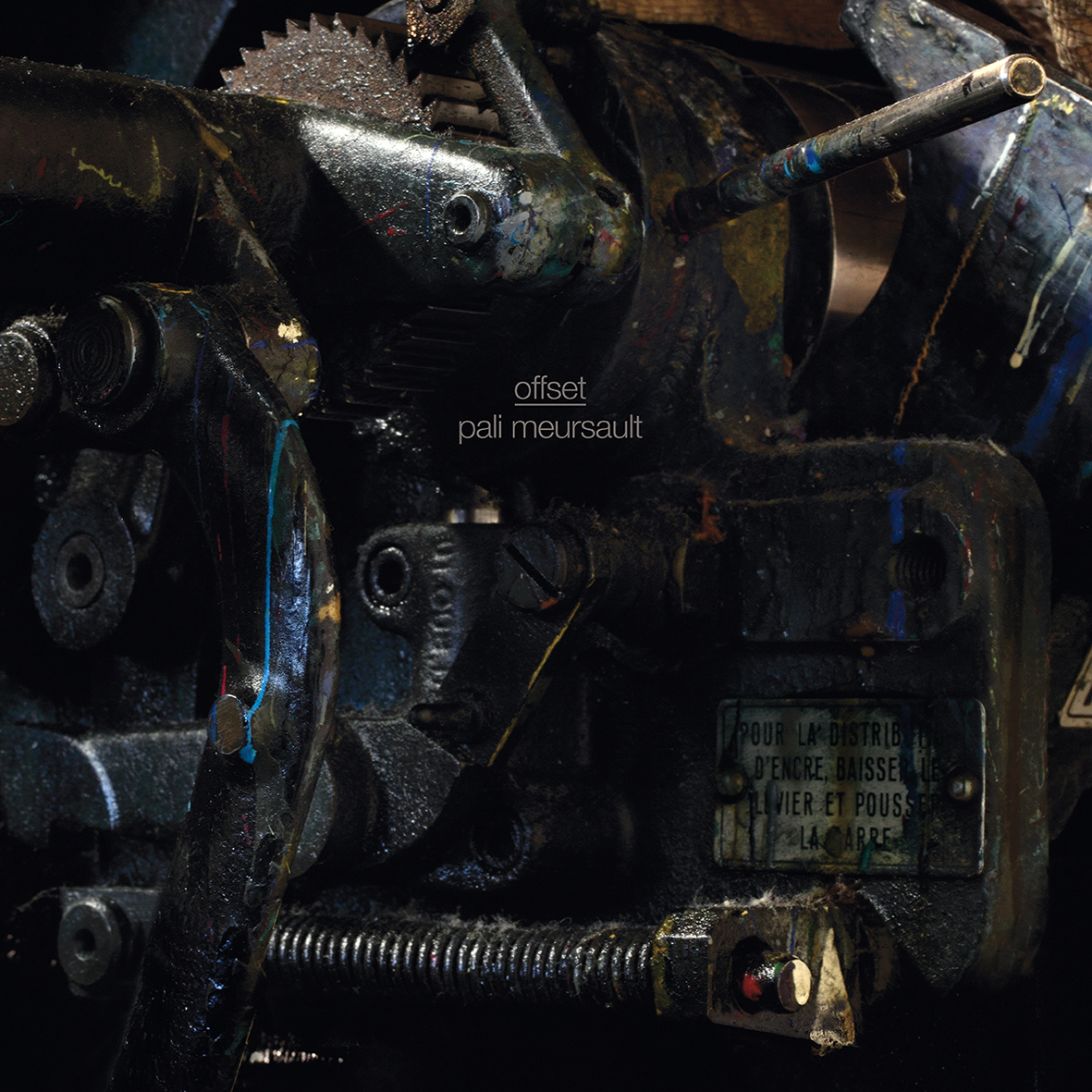 I definitely have a soft spot for industrial music that is so goddamn industrial that it is literally just the sound of machines, so I am the target demographic for this suite of compositions built upon recordings from two French printing facilities.  It is very hard to say how much conventional "composition" was involved though, as Offset often feels like pure audio vérité that has just been cleaned up and EQed for maximum impact.  That is fine by me: regardless of how much or how little studio tweaking, manipulation, and multi-tracking actually took place, Meursault's inspired selection and sequencing yields a very coherent, weirdly hypnotic, and intermittently dazzling whole.
I definitely have a soft spot for industrial music that is so goddamn industrial that it is literally just the sound of machines, so I am the target demographic for this suite of compositions built upon recordings from two French printing facilities.  It is very hard to say how much conventional "composition" was involved though, as Offset often feels like pure audio vérité that has just been cleaned up and EQed for maximum impact.  That is fine by me: regardless of how much or how little studio tweaking, manipulation, and multi-tracking actually took place, Meursault's inspired selection and sequencing yields a very coherent, weirdly hypnotic, and intermittently dazzling whole.
Doubtful Sounds/Universinternational
Offset may seem like an album that draws from very narrow source material, but Pali Meursault's previous album (2011's Without the Wolves) featured a 20-minute piece built from recordings of a melting glacier, which must make recordings of printing presses seem positively liberating and limitless by comparison.  In fact, Meursault actually found these field recordings to be fertile enough material to sustain two fairly different creative directions, one of which is covered on each side of the record.
The first side is devoted to rhythmic patterns or cycles, which is the most obvious theme to explore when faced with a room full of vibrantly whooshing, buzzing, clattering, and clunking machines.  The recordings are predictably and appealingly relentless and mechanized-sounding, but Meursault occasionally surprises me with a striking passage that transcends my limited field recording/collage expectations.  For example, "Cycle 1" sometimes sounds like the labored inhalation and exhalation of some kind of massive metallic monster, while "Cycle 2" sounds absolutely nightmarish when a grindingly dissonant buzz cuts through the crunching and echoing clanks.  Parts of "Cycle 4" even manage to sound like some kind of cutting-edge experimental dance music, as its locked-groove-sounding rhythm starts to resemble a minimalist bass line with dynamically satisfying stops-and-starts.
The second side of album is dedicated to the idea of "flux" and focuses upon the gradual morphing of the machine rhythms, which turns out to be where Meusault's skill and vision truly manifest themselves.  The first of the two lengthy pieces, "Flux 1," is the album's clear highlight, but its brilliance does not become fully evident until the very end.  Instead, it just sounds like constantly clicking, whooshing juggernaut of thrum, which is still quite impressive.  In fact, its sheer relentlessness is utterly mesmerizing, as are its constant minor shifts in texture and density.  Its sole flaw is that the momentum occasionally flags, but that setback is easily eclipsed by the surprise ending where everything coheres into a full minute of shuddering, sinister-sounding machine drone.  The longer "Flux 2" does not quite achieve a similar feat of last-minute alchemy, but is otherwise equally hypnotically propulsive.
Naturally, a vinyl-only album of printing press-based electroacoustic compositions is about as "niche" as it gets, but Meursault unquestionably excelled at what he set out to accomplish: there are definitely some people out there who will want to hear this and they will be very happy when they do.  A small part of me secretly wishes Pali had been more aggressive in his treatment of the material or perhaps collaborated with someone who might have taken the recordings in a more conventionally musical  direction (Offset seems like it would be prime grist for a killer Esplendor Geométrico album), but most of me just appreciates Meursault's commitment to purity and is largely awestruck by what he was able to accomplish with such a willfully limited palette.
 
Read More

